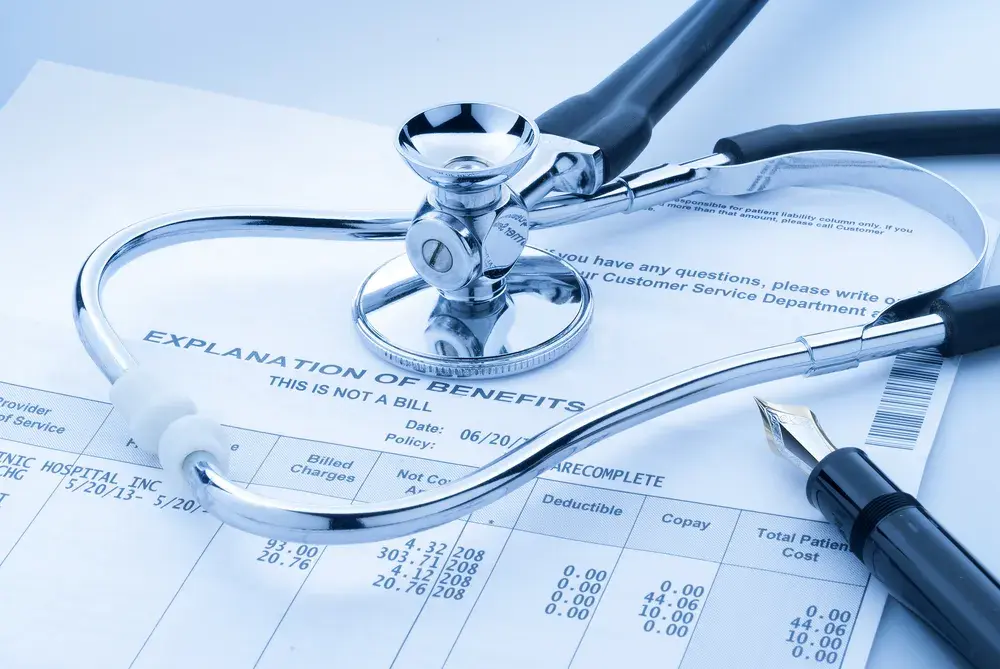From cameras to alarm clocks and phone books, everything you need is now on your smartphone. That’s because convenience is all that matters in the modern world. So why should managing your practice be any different?...
According to a report by the Journal of Urgent Care Medicine, unreliable medical billing is one of the top challenges in urgent care. Managing urgent care medical billing services efficiently is crucial for the financial health of these facilities, yet it is fraught with complexities. These challenges include coding errors, claim denials, and regulatory compliance issues, which can significantly impact revenue cycles.
Implementing an urgent care EHR system can address these issues by streamlining billing processes, improving accuracy, and ensuring compliance with industry standards. By automating various aspects of the billing cycle, EHR systems reduce the likelihood of human error and speed up the reimbursement process. This enhances the efficiency of billing operations and ensures that urgent care centers can focus more on patient care.
In this blog, we've explored the top seven challenges in urgent care medical billing services and how EHR solutions can effectively resolve them. Urgent care centers can optimize billing practices and enhance financial stability by understanding these challenges and leveraging the right technology. It's time to take control of your billing processes and focus on what you do best for patient care.

1. Tackling Coding Errors Head-On
Coding errors are prevalent in urgent care medical billing services, often leading to significant revenue losses and operational inefficiencies. These errors occur when medical procedures and diagnoses are inaccurately recorded, resulting in claim denials or underpayments. Given the fast-paced nature of urgent care, the risk of such mistakes is exceptionally high, making it crucial to address this challenge effectively.
Implementing an urgent care EHR system can dramatically reduce coding errors by automating the coding process and ensuring that the latest coding standards are always in use. With built-in checks and regular updates to coding databases, EHR systems help healthcare providers accurately capture the necessary codes for each service rendered.
This approach minimizes the risk of human error and speeds up the billing process, ensuring timely and accurate reimbursement. Urgent care centers can improve their financial health by tackling coding errors head-on with EHR technology and focusing more on delivering quality patient care.
2. Slashing Claim Denials
Claim denials are a major headache for urgent care centers, often resulting in delayed payments and increased administrative workload. These denials frequently stem from errors such as incorrect patient information, missing documentation, or improper coding. Addressing these issues promptly is essential to maintain a steady cash flow and ensure the financial stability of the practice.
Implementing urgent care EHR software can slash claim denials by automating the claims management process and providing real-time error checking. EHR systems ensure that all required information is accurately captured and validated before submission, reducing the likelihood of denials. Additionally, integrated tools for verifying patient eligibility and benefits help prevent issues that typically lead to claim rejections.
3. Navigating Regulatory Compliance
Navigating regulatory compliance is a complex yet crucial aspect of urgent care medical billing services. Healthcare regulations, such as HIPAA, require stringent adherence to data privacy and security standards, making compliance a significant challenge. Failure to comply can result in severe penalties and damage to the practice's reputation.
An all-in-one EHR can simplify compliance by incorporating built-in compliance checks and automated updates to reflect the latest regulatory changes. These features ensure that all patient data is handled according to legal requirements, reducing the risk of violations. Additionally, EHR systems provide detailed audit trails, making it easier to demonstrate compliance during inspections.
4. Streamlining Patient Information Management
Maintaining accurate and comprehensive patient records is a significant challenge in urgent care. Incomplete or outdated information can lead to billing errors and reimbursement delays. Efficient patient information management ensures that billing processes run smoothly and patient care is not compromised.
By opting for the best EHR, an urgent care practice can streamline patient information management by centralizing data into a single, accessible platform. This system allows healthcare providers to quickly and accurately update patient records, reducing the risk of errors. Additionally, EHRs facilitate seamless data entry and retrieval, ensuring that all necessary information is readily available for billing and clinical decision-making.
5. Boosting Billing Process Efficiency
Traditional billing processes in urgent care facilities are often plagued by inefficiencies that lead to delays and increased operational costs. Manual data entry, error-prone paperwork, and fragmented systems contribute to these challenges, making it difficult to maintain a smooth and timely billing cycle.
Integrating urgent care EHR software can significantly boost billing process efficiency by automating many of these tasks. EHR systems streamline workflows, reducing the time spent on administrative duties and minimizing the risk of errors. Additionally, real-time financial reporting tools provide insights into the billing process, allowing for quicker identification and resolution of issues.

6. Simplifying Insurance Verification
Insurance verification is a critical but often cumbersome task in urgent care medical billing services. Manually verifying patient insurance information can lead to errors and delays, impacting both the billing process and patient care. Inaccurate insurance details can result in denied claims and lost revenue.
A specialty specific EHR simplifies insurance verification by integrating real-time eligibility checks and verification tools. This automation ensures that patient insurance information is accurate and up-to-date before services are rendered.
Moreover, streamlined verification processes reduce administrative burdens and prevent billing issues. By adopting EHR technology, urgent care centers can enhance efficiency, minimize errors, and ensure smoother billing operations.
7. Enhancing Payment Collection
Enhancing payment collection is essential for the financial health of urgent care centers. Challenges such as delayed payments and unpaid bills can strain resources and disrupt cash flow. Efficient payment collection processes are crucial to maintaining a stable revenue cycle.
An urgent care EHR system improves payment collection by offering patient portals with integrated payment options. These portals enable patients to pay their bills quickly online, enhancing convenience and encouraging timely payments. Additionally, automated payment reminders and follow-up notifications help reduce the incidence of unpaid bills.
Conclusion
Addressing the challenges in urgent care medical billing services is crucial for the financial stability of healthcare providers. Implementing an urgent care EHR system by Practice EHR can streamline processes, reduce medical coding and billing errors, and ensure compliance. By leveraging these advanced tools, urgent care centers can enhance their billing efficiency and focus more on delivering quality patient care. Embracing EHR solutions is a strategic move towards operational excellence and improved financial health. To get the best urgent care EHR, contact us today to book a demo!
Topics: EHR Solution, Specialty-Specific EHR, Urgent Care, Medical billing services, EHR, Technology in Healthcare, EHR Features, Practice Management Software, Urgent Care Medical Billing
RECENT POSTS



TOPICS
- EHR Solution (147)
- EHR (84)
- Patient Care (77)
- digital age (77)
- Medical Billing (72)
- Specialty-Specific EHR (70)
- Integrated EHR (59)
- Small Practice (56)
- Technology in Healthcare (55)
- Industry Update (50)
- New Technology (47)
- Medical billing services (45)
- RCM (43)
- EHR Features (42)
- Cloud-based EHR (39)
- Practice EHR News (39)
- Healthcare Office Management (37)
- Kiosk (28)
- ePrescribing (21)
- HIPAA Security (20)
- Telemedicine (14)
- EMR (12)
- Revenue Cycle Management (12)
- Practice Management Software (11)
- Client Favorites (10)
- Practice Automation (10)
- The ONE (10)
- Urgent Care (8)
- MACRA/MIPS (7)
- Patient Portal (7)
- Switching to New EHR (6)
- events (6)
- E-Prescribing (5)
- Product Updates (5)
- TeleVisit (5)
- AI Solutions (4)
- Insider (4)
- Internal Medicine EHR (4)
- MIPS (4)
- Podiatry (4)
- Podiatry EHR (4)
- AI Scribing (3)
- HIPAA (3)
- MIPS Reporting (3)
- Regulatory Updates (3)
- AI scanning (2)
- Billing for Private Practices (2)
- Clearinghouse (2)
- Dermatology EHR (2)
- EHR Scheduling (2)
- Foot and Ankle Care (2)
- Foot and Ankle EHR (2)
- Health records 101 (2)
- Integrated Practice Management (2)
- Medical Credentialing (2)
- Medical Practice Management Software (2)
- Orthopedics EHR (2)
- Patient Check-in Kiosk (2)
- Psychiatry EHR (2)
- Quality of Patient Care (2)
- Reporting Under MIPS (2)
- Risk and Liability in Medical Settings (2)
- Telehealth Platform (2)
- Telehealth Platforms (2)
- What Works Clearinghouse (2)
- AI-powered Medical Billing (1)
- Bariatric EHR (1)
- Behavioral Health Practices (1)
- Billing Communication (1)
- Cardiology EHR (1)
- Cash Flow (1)
- Chiropractic EHR (1)
- Data Security (1)
- Dos and Don'ts (1)
- EHR Guides (1)
- EHR KPIs (1)
- EHR Questions to Ask (1)
- EHR for Chiropractors (1)
- EHR for Chronic Illness (1)
- EMR vs EHR Difference (1)
- ENT EHR (1)
- Eligibility Verification in Medical Billing (1)
- Endocrinology EHR (1)
- Family Medicine (1)
- Family Medicine EHR (1)
- Gastroenterology (1)
- Gastroenterology EHR (1)
- General Surgery EHR (1)
- Geriatrics EHR (1)
- Guides (1)
- Healthcare Compliance Certification (1)
- Healthcare Practice Office Management (1)
- Help Center Videos (1)
- Insurance Reimbursement (1)
- KPI (1)
- Key Performance Indicators (1)
- Lab Processing (1)
- MACRA (1)
- Medical Billing Partner (1)
- Medical Coding Services (1)
- Mobile EHR (1)
- Nephrology EHR (1)
- Neurology EHR (1)
- Pain Management EHR (1)
- Pediatrics EHR (1)
- Physical Therapy EHR (1)
- Practice Cash Flow (1)
- PracticeEHR GO App (1)
- Pulmonology EHR (1)
- Simplify Practice Management (1)
- Staffing in Healthcare (1)
- Switch Medical Billing Providers (1)
- Urgent Care Medical Billing (1)
- Urology EHR (1)
- insurance claim denials (1)







